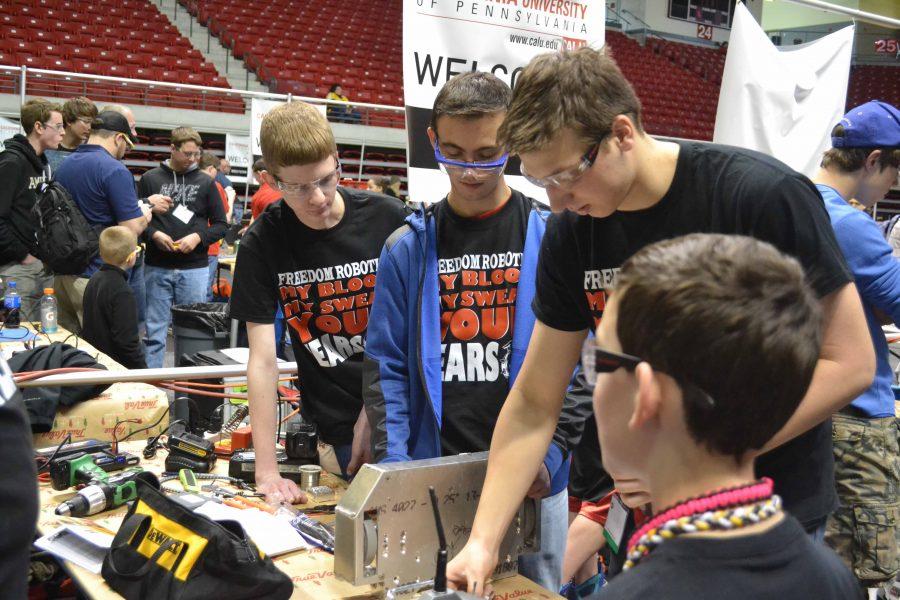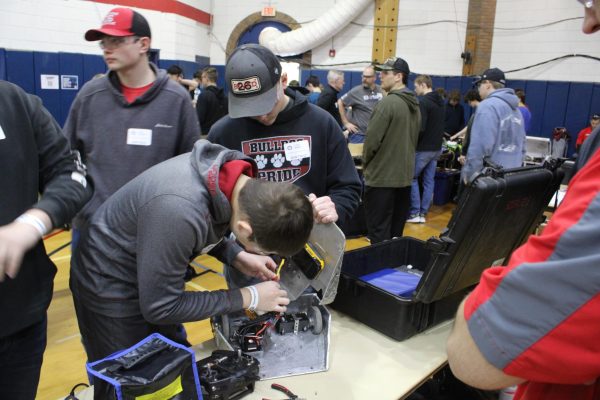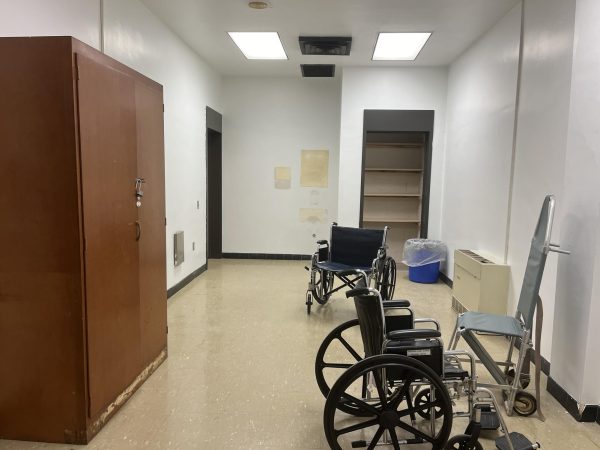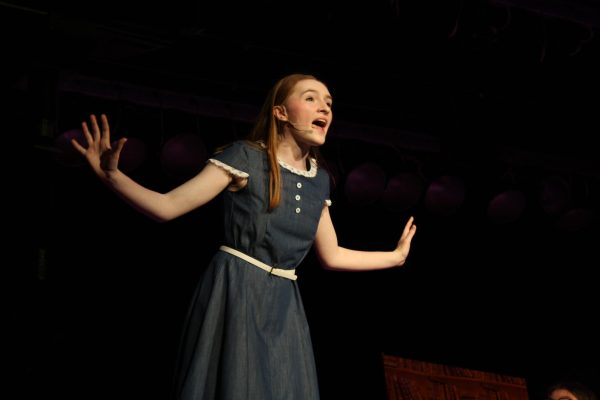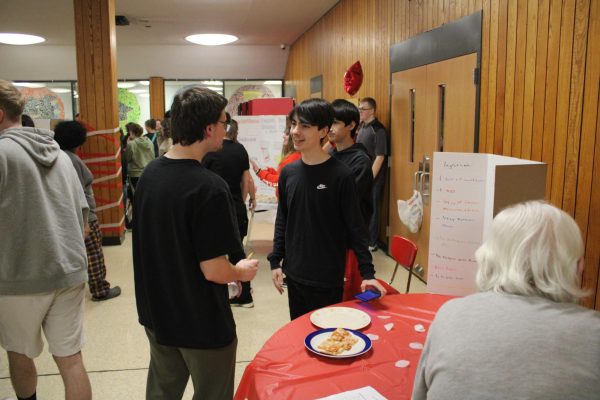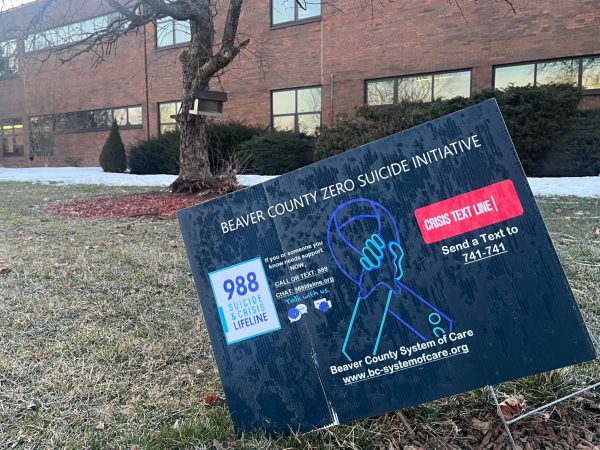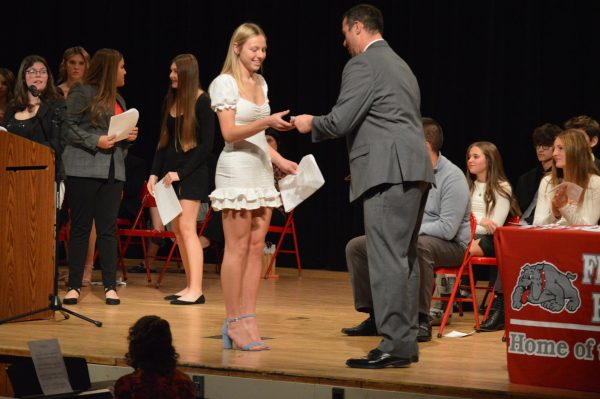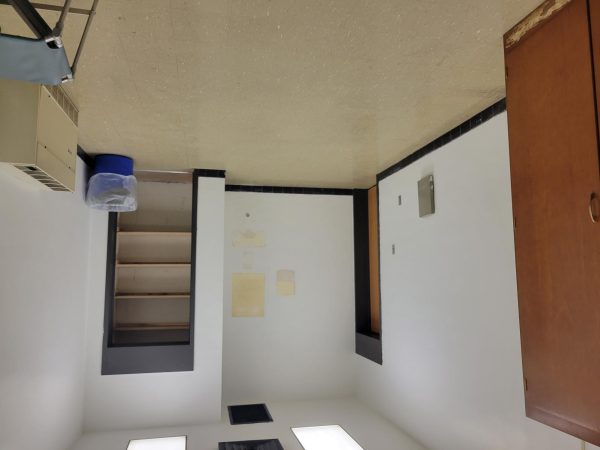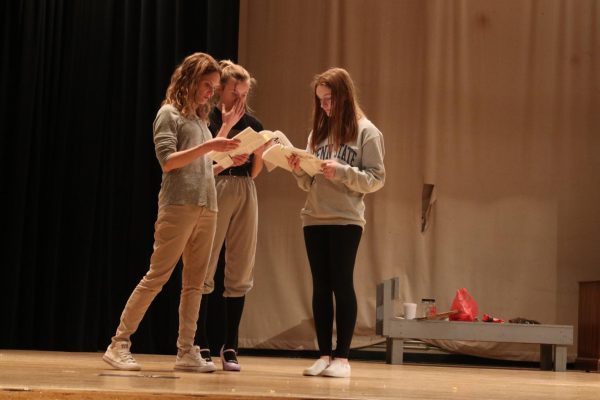From brain to bot
Since the beginning of the school year, Freedom’s two robotics classes had been hard at work constructing their robots for the Southwest Bot IQ competitions. They were tasked with not only creating a feasible design that met the competition’s requirements, but also constructing, powering, and operating the robot, which they accomplished with the aid of volunteers from VEKA.
The preliminary competition was held on March 10 at Butler County Community College. Members from both classes completed their bots on the day before, but suffered from difficulties on the day of competition. One robot was two and a half pounds over the fifteen pound weight limit, and the other wouldn’t run. Prior to the actual competition, neither robot had actually been fully built or ever driven.
The team of Seniors Louis Dubovi, Tyler Bonzo and Brandon Barnhart won their first battle because the other school forfeited, but could not get their bot to work so they had to forfeit the rest of their matches. The other team composed of Seniors Eric Eisenbrown, Vinnie Rose, Junior Shawn Bleu and Freshman Willem Michener were able to get their bot working enough to actually have it battle, but lost their matches.
Though the preliminary competitions did not bring great success for either robotics team, they did provide a learning opportunity for both teams on areas that needed to be improved before the final competition.
“That competition was incredibly stressful. We had to make a lot of last minute modifications and corrections, which was a big learning experience. Handling the stress was tough, but our team focused on what needed to be done and we did it,” Dubovi said.
Both teams made moves to reduce the weight of their bots, so that making last minute weight adjustments wouldn’t be an issue on the day of the competition. Eisenbrown’s team also chose to switch the weapon on their robot, which had initially been a beater bar. They chose instead to build a wedge, which in theory would allow them to get under the other team’s bot to flip them and render them ineffective.
“Unfortunately, our beater bar put us well over the weight limit. We knew we had to make some changes, “ Rose said.
The final competition was held on April 8 and April 9 at California University of Pennsylvania. Dubovi’s team were set to compete third, but due to problems with charging their battery, they were forced to forfeit their first match. Since they lost they didn’t have another match the rest of that day, though they were guaranteed to fight the following morning.
Eisenbrown’s team on the other hand started off their day strong with a win due to the other school not showing up. After a long break, they battled and won two more competitions largely due to the successful driving of Eisenbrown before later losing to Fox Chapel, who managed to flip the robot’s on/off switch after a hit leaving their robot incapacitated. They too were then done for the day, and had another battle the following morning.
Dubovi’s team lost their first match of Day 2, which ended the competition for them. Eisenbrown’s team won a few more battles before ending their run with a loss to Plum High School in the quarter finals.
Overall, though neither team was able to win the competition, both groups were satisfied with how the whole process went.
“I really felt like we had a good year. We made a great bot, but of course there’s still room for improvement. I hope to see this program continue to grow and that future teams are even better,” Eisenbrown said.



